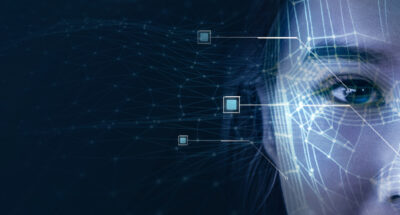
Think like your enemies to stay safe with AI
Know AI’s strengths and weaknesses to shield your organization from increasingly sophisticated cyberattacks. ...
23 November 2023 • by Arturo Bris in Technology
Artificial intelligence is set to transform the world – but who stands to benefit and who will lose? Arturo Bris, Director of the IMD World Competitiveness Center, considers how previous technological advances...
The 168-day strike by the Writers Guild of America, calling for limits on how studios can use generative AI technology when making movies and TV, has finally ended. The protest brought significant attention to an important issue – the potential impact of AI on jobs and economies globally.
It is often reported that AI will generate millions of jobs in the future and that it will make significant contributions to the global economy due to increased productivity – some claim it could add around $13tn to global output by 2030. But it is important to question the methodologies behind these findings because it is not possible to predict the future. Who will benefit from AI and who will not?
There are many examples of how the introduction of new technologies may on the one hand improve productivity, but on the other hand have a lasting, negative impact on prosperity. Let us consider the impact of technology on shoemaking.
In his paper Machines Eating Men: Shoemakers and their Children after the McKay Stitches (November 2023), PhD candidate in business economics William M Cockriel explores the impact of technological advancements on the shoe industry in 1862. The invention of the McKay stitcher revolutionized the industry by replacing what had previously been a laborious manual stitching process. Cockriel discovered that while the industry benefited from the advancement, the shoemakers themselves suffered a decline in prosperity over three generations.
AI will deliver improved outputs and profitability – but at what cost?
Records show that the shoemakers who were replaced by the McKay machine were forced to leave the industry and find lower-paid jobs elsewhere due to their lack of skills. This in turn impacted the second generation of these families because, prior to this, skills would have been passed on from father to son. Further, while output at the factories increased, the new roles that followed were unskilled jobs with lower salaries. The impact of the advances in technology was felt for two generations, who lost 2.2 and 2.5 years of wages respectively.
There are important lessons to be learned as we see technology transforming economies.
When an economy transitions to an increasingly automated economy, there is a direct impact on employment. So, when AI is introduced at a macro level, it will have a direct impact on employment through the displacement effect: AI solutions are introduced, which results in displacement, meaning that labor is replaced by technology; this increases productivity but also drives unemployment.
A dual economy, which economists refer to as “the reinstatement”, then follows. This is a period characterized by high productivity. Here we would expect to see AI driving output growth in the sector. Those who have lost their jobs due to the AI solution will now find lower-paying jobs that do not require technology. The macro economy then grows as output increases but most of the production is driven by machines; people are working in lower-paid jobs and their prosperity declines.
The final effect, the new ‘digital economy’ that emerges, is characterized by higher output, higher total factor productivity, and possibly more economic growth – but less prosperity because people are paid less than they were previously. Further, there are more unemployed workers than there were before because machines have taken over their jobs.

In the 1980s we saw high levels of employment, but of a lower quality. It was a time of massive digital transformation, but also a time when people were paid less than previously – so while technology advanced, prosperity declined.
The transition effect doesn’t just negatively impact jobs and prosperity. It also creates global imbalances and inequalities. For example, leading economies, such as the United States and China, will increasingly invest in AI, which will supercharge their output, but lower-income countries do not have the ability to cannot make these investments so they fall behind.
When we consider how quickly AI can be implemented and can replace jobs it is very concerning. Innovation that drives job creation is slower to develop. This means that we are likely to see more generations impacted by a lack of opportunity or a fall in prosperity, which may result in social unrest as people become increasingly frustrated.
When contemplating the impact on broader society, it is important to consider the benefits of limiting AI in a balanced manner.
Yes, AI will deliver improved outputs and profitability – but at what cost? The risk of loss of jobs, income disparity, and social damage needs to be weighed up in equal measures. There is, I believe, a strong reason to limit the corporate applications of AI. We have seen what is possible through ESG commitments, and we could consider a similar approach.
Limiting the applications of AI is important but will be extremely difficult. While regulators are currently working on drawing up regulations, they are not taking the right stance. For example, the EU AI Act 2023 is looking at the ethics of AI (with a focus on the competitiveness of companies to promote fair investment in AI and to preserve rights and safety), but it does not look at preserving economic growth or preserving jobs, which should be paramount.
It is critical that the correct interventions are considered when formulating policies, and these must consider the benefit to society at large. Ideally, a coordinated global approach should ensue, and this in turn will require the setting up of a governance system.
This article is inspired by a keynote session at IMD’s Orchestrating Winning Performance in Singapore, which brings together executives from diverse sectors and geographies for a week of intense learning and sharing with IMD faculty and business experts.

Professor of Finance at IMD
Arturo Bris is Professor of Finance at IMD. Since January 2014, he has led the world-renowned IMD World Competitiveness Center. At IMD, Bris directs the Boards and Risks, Strategic Finance, and Navigating Fintech Innovation and Disruption programs. He also previously directed the flagship Advanced Strategic Management program between 2009 and 2013.

23 July 2024 • by Öykü Işık in Artificial intelligence
Know AI’s strengths and weaknesses to shield your organization from increasingly sophisticated cyberattacks. ...

4 July 2024 • by Ralf W. Seifert, Philip Sieber-Gasser in Artificial intelligence
The sheer complexity of trade regulation and the risk of non-compliance mean companies are missing out on billions in tariff savings from Free Trade Arrangements (FTA) in their global supply chains. New...

2 July 2024 • by Richard Baldwin in Artificial intelligence
AI-enabled “middle jobs” to reduce income inequality in advanced economies ...

31 May 2024 • by Patrick Reinmoeller in Artificial intelligence
The world is getting smarter. Rather than feel threatened, we need to learn how to become smarter to deal with it. Gerd Gigerenzer tells IMD’s Patrick Reinmoeller how it’s done ...
Explore first person business intelligence from top minds curated for a global executive audience